THROUGH DISTRIBUTION OF MIDWIFE BACKPACKS IN THROUGH DISTRIBUTION OF MIDWIFE BACKPACKS IN ILUNGU DISTRICT, TANZANIA.

We believe that the location of a woman at childbirth should never be a
predominant factor whether she and her baby dies or survives.
SUMMARY OF THE PROJECT
Every mother should be entitled to access to expert health care,
regardless of economic status and location, to ensure the health, safety
and well-being of herself and her baby.
A joint project of Shukrani Organization Development Initiatives
(SODI), Light for Africa Foundation and AIDPOL Ltd has been carried out.
The project “PROVIDING SAFE CHILDBIRTH FOR TANZANIAN MOTHERS”
has been implemented in Tanzania, Ilungu District, Ifupa village. Within
the project 500 Midwife Backpacks have been distributed, providing safe
home childbirth for 5000 mothers and their newborn babies. 55 local
midwives have been trained on how to carry out safe home childbirth.
CHALLENGE
In Tanzania, lack of access to safe maternity services contribute a
a range of adverse outcomes, from delayed treatment to disability and
even death. Less than half the population can get to healthcare within
10 km and there is a huge lack of trained health workers. This means that
if a woman goes into labor and there are complications, the likelihood
is that she won’t be able to get to a hospital- even if she does, there
probably won’t be a trained midwife to give her the care she needs.
FAST FACTS
- Under-five mortality 81/1,000 live births
- Neonatal mortality 26/1,000 live births
- Infant mortality 51/1,000 live births
- Maternal mortality 454/100,000 live births
- Delivery in health facility 51%
- Children (12-23 months) fully immunized 75%
- The proportion of infants with low birth weight (<2.5kg) 7%
Great concern is the high death rates of newborn babies and mothers.
Around 32% of all under-five deaths occur in the first 28 days of life –
many infants survive for only a few days.
These deaths occur in a context where about half of all births take place
at home, with assistance from a relative or traditional birth attendant.
Most of these births take place in unhygienic conditions.
These deaths occur in a context where about half of all births take place
at home, with assistance from a relative or traditional birth attendant.
Most of these births take place in unhygienic conditions.
Tanzania still has a long way to go to establish an adequate and efficient health care system that
benefits every individual in the country. Despite improvements, about 390 children under five die
every day of mainly preventable and treatable conditions.
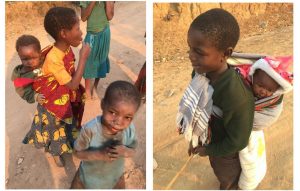
Neonatal deaths are inextricably linked to the conditions of delivery and newborn care. Close to
8,000 women die every year during pregnancy and child birth as a result of conditions that could
have been prevented or treated. Poor quality of care due to an insufficient number of skilled health
workers and lack of basic equipment, as well as long distances from home to health care facilities
are major deterrents to facility delivery. Women living in rural areas, those who come from the
poorest families and those who are less educated, have the least access to skilled attendance at
delivery. On average, every Tanzanian woman gives birth to 5 or 6 children and 1 in 3 of them begins
childbearing before the 18th birthday.
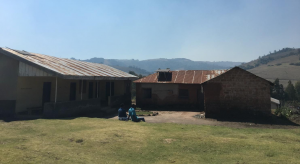
The local clinic, Ifupa village, Tanzania
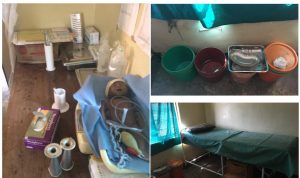
Labour room in color clinic, Ifupa village, Tanzania.
Solution
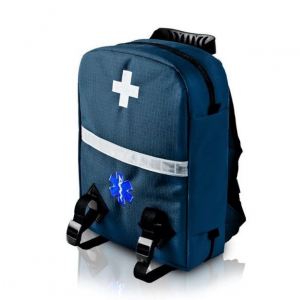
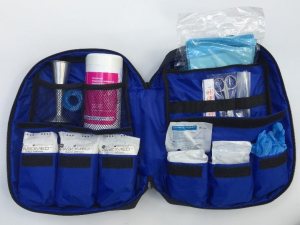
Midwife Backpack is an inexpensive, simple kit designed to help create a clean birthing environment,
particularly for home births. The delivery kit is intended to be used by skilled birth attendants, family
members, and women who give birth unassisted at home.
Results show that the kit has significant impact in reducing rates of infection. Newborns of mothers
who used the clean delivery kit were about 13 times less likely to develop cord infection than infants
whose mothers did not use the kit. Women who used the kit were about 3 times less likely to develop
puerperal sepsis than women who did not use the kit. The study results suggest that making clean
delivery kits available through government health clinics, markets, private pharmacies, or other
commercial channels could likely help reduce rates of infection.
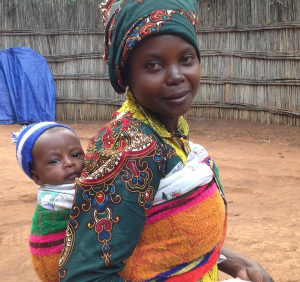
TARGET GROUP
5 000 pregnant women and their
babies have been the beneficent of the
project. These women live in the most
poor and marginalized areas of Ilungu
District, Tanzania. Direct beneficiaries
are pregnant women; most of these are
coming from ultra-poor families that
cannot afford basic amenities for a
smooth delivery and care of the child.
The project will target rural areas in
Tanzania.
ACTIVITIES OF THE PROJECT
1. Selection of beneficiaries on the basis of clearly defined criteria
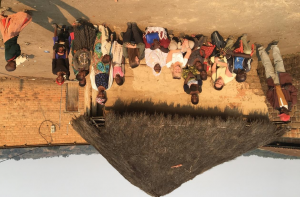
2. Shipping Midwife Backpack to Ifupa, Ilungu district, Tanzania
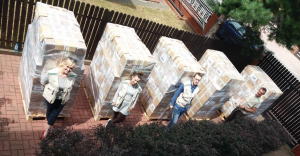
Distribution of Midwife Backpack among hospital staff and midwifes- under the supervision
of SODI
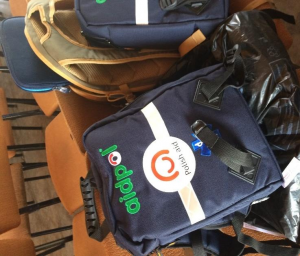
4. Training – a major goal of the SODI is working closely with local health facilitators transferring
knowledge of good practice, which will increase the level of awareness and competence in
local communities.
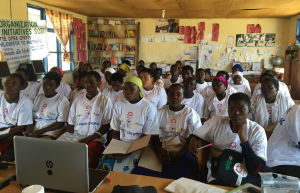
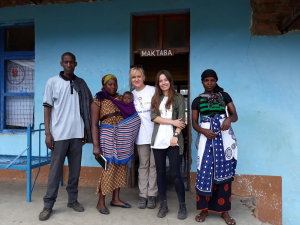
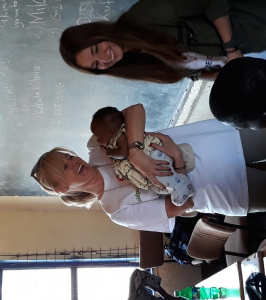
5. Monitoring and evaluation – monitoring of the project activities will include collecting
information. The final evaluation will be generated after the completion of the project. The
an analysis will include: relevance and objectives, efficiency, effectiveness, the impact of the
project, as well as its durability
OUTCOMES.
- 55 local health care providers trained how to carry out a safe home birth
- 500 birthing kits distributed among midwives in Ilngu district, Tanzania
- Increased number of women with access to basic maternity care
- Increased qualifications of local birth attendants
- Increased number of safe births in remote rural areas of Tanzania
- Reduced number of infections
- 5 000 women using the above equipment during labor
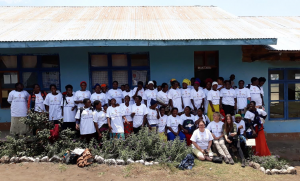
AIDPOL Ltd ǀ www.aidpol.com
Light for Africa Foundation ǀ www.localhost/sda